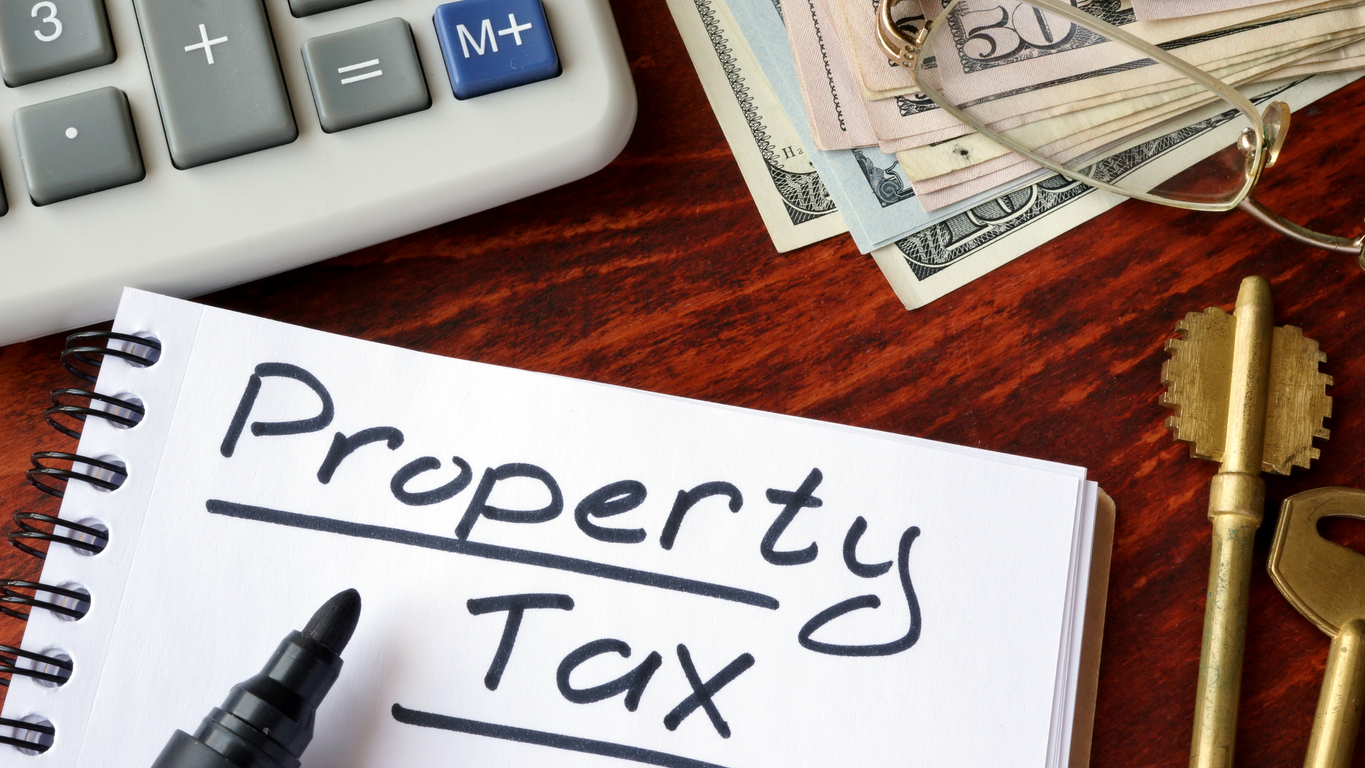When buying a home, many first-time buyers find themselves overwhelmed by the myriad of financial responsibilities that come with homeownership. One common question that arises is whether property tax is included in the mortgage. Property taxes are not closing costs, rather annual expenses that home buyers must budget before committing to a mortgage and home purchase.
Does Mortgage Include Property Tax?
Understanding how property taxes and mortgages interact is crucial for managing your finances and ensuring that you are adequately prepared for homeownership. In this article, Smart Lending will explore the relationship between property taxes and mortgages, how property taxes are typically paid, and what to expect as a homeowner.
Understanding Property Taxes
Property taxes are levies imposed by local governments on real estate properties. These taxes are a significant source of revenue for municipalities, funding essential services such as public schools, police and fire departments, road maintenance, and other local government activities. The amount of property tax you owe is typically based on the assessed value of your property and the tax rate set by your local government. Please keep in mind that property taxes can be included in a first mortgage but not a second mortgage.
How Property Taxes Are Assessed
Local governments assess property taxes based on the value of your property, which is determined by an assessor. The assessor considers various factors, including the size, location, and condition of the property, as well as recent sales of comparable properties in the area. The assessed value is then multiplied by the local tax rate to determine the annual property tax amount.
For example, if your home is assessed at $300,000 and the local tax rate is 1.5%, your annual property tax would be $4,500. It’s important to note that property tax rates and assessment practices can vary widely depending on where you live.
Mortgage and Property Tax: The Basics
A mortgage is a loan used to purchase real estate, where the property itself serves as collateral for the loan. When you take out a mortgage, you agree to repay the loan amount, plus interest, over a specified period, typically 15 to 30 years. Your monthly mortgage payment usually consists of several components, including principal, interest, and often, property taxes and homeowners insurance.
While your mortgage payment covers the loan you took out to buy your home, property taxes are a separate expense related to owning real estate. However, many lenders require borrowers to pay their property taxes through an escrow account as part of their monthly mortgage payment. This practice helps ensure that property taxes are paid on time and reduces the risk of tax-related foreclosure.
What is an Escrow Account?
An escrow account is a separate account set up by your mortgage lender to collect and hold funds for property taxes, homeowners insurance, and sometimes other expenses such as private mortgage insurance (PMI). Each month, a portion of your mortgage payment is deposited into the escrow account, and the lender uses these funds to pay your property taxes and insurance premiums when they are due.
Here’s how it works:
- Monthly Payment: Your mortgage payment includes an amount for principal, interest, property taxes, and insurance. The portion allocated for taxes and insurance goes into the escrow account. You can roll property taxes into a mortgage payment on a primary and second home.
- Escrow Analysis: Lenders perform an annual escrow analysis to ensure that the amount collected is sufficient to cover your tax and insurance obligations. If your property taxes or insurance premiums increase, your monthly mortgage payment may be adjusted accordingly.
- Disbursement: When your property taxes or insurance premiums are due, the lender uses the funds in the escrow account to make the payments on your behalf.
Benefits of an Escrow Account
Using an escrow account to pay property taxes and insurance has several benefits for homeowners:
- Convenience: Combining your property tax and insurance payments with your mortgage payment simplifies the process and reduces the number of separate bills you need to manage.
- Timely Payments: The lender ensures that property taxes and insurance premiums are paid on time, preventing late fees and potential tax liens.
- Budgeting: Escrow accounts help homeowners budget for large annual expenses by spreading the cost over 12 monthly payments, making it easier to manage finances.
Drawbacks of an Escrow Account
While escrow accounts offer convenience and peace of mind, they also have some potential drawbacks:
- Overages and Shortages: Changes in property tax rates or insurance premiums can lead to overages or shortages in your escrow account. If there is a shortage, you may need to make a lump-sum payment or have your monthly mortgage payment increased to cover the difference.
- Escrow Cushion: Lenders often require a cushion or reserve in the escrow account, typically equal to two months’ worth of payments, to cover potential increases in taxes or insurance. This can increase your initial deposit and monthly payment.
- Lack of Control: Some homeowners prefer to manage their own tax and insurance payments rather than relying on the lender. This gives them more control over their finances and the timing of payments.
Paying Property Taxes Without an Escrow Account
In some cases, homeowners may choose or be required to pay property taxes directly to the local government rather than through an escrow account. This arrangement is more common for borrowers with significant equity in their homes or those with certain types of loans. If you pay property taxes directly, it’s essential to budget for these expenses and ensure that payments are made on time to avoid penalties or liens.
Advantages of Paying Taxes Directly
- Control: You have full control over your tax payments and can choose the payment method and timing that works best for you.
- Interest Earnings: Instead of having your money held in an escrow account, you can keep it in a high-yield savings account or other investment, potentially earning interest until the taxes are due.
Disadvantages of Paying Taxes Directly
- Discipline Required: Paying property taxes directly requires discipline and careful budgeting to ensure you have enough funds available when taxes are due.
- Risk of Late Payments: Missing property tax payments can result in penalties, interest charges, and even tax liens, which can jeopardize your homeownership.
How to Choose the Right Option
Deciding whether to include property taxes in your mortgage payment through an escrow account or to pay them directly depends on your financial situation and preferences. Here are some factors to consider:
- Loan Requirements: Check with your lender to see if an escrow account is required. Some lenders mandate escrow accounts for certain types of loans or borrowers with lower down payments.
- Financial Discipline: Consider your ability to budget and manage large annual expenses. If you prefer convenience and simplicity, an escrow account may be the best option. If you are disciplined and prefer more control, paying taxes directly might be preferable.
- Interest Rates and Fees: Compare the potential interest earnings from keeping your tax money in a savings account versus the convenience and potential fees associated with an escrow account.
Summary on Property Taxes and Mortgage Loans
Property taxes are a crucial aspect of homeownership that can significantly impact your financial planning. While property taxes are not inherently included in your mortgage, many lenders require an escrow account to collect and pay these taxes on your behalf. This arrangement simplifies the process, ensures timely payments, and helps with budgeting. However, it also comes with some drawbacks, such as potential overages or shortages and a lack of control over the funds.
Understanding the relationship between property taxes and your mortgage is essential for making informed decisions about your home financing. Whether you choose to include property taxes in your mortgage payment through an escrow account or pay them directly, it’s crucial to budget accordingly and stay on top of your tax obligations to protect your investment and ensure financial stability.
Take a few minutes and complete the quick quote form and Smart Lending will match you with top mortgage lenders around the country.



